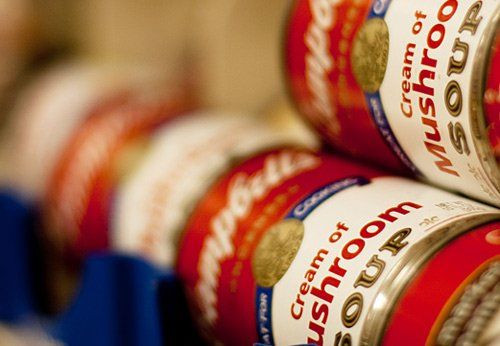Study Finds Possible Link Between BPA And Breast Cancer, But Were The Results Twisted?

A Tufts University study funded by the National Institute of Environmental Health Sciences (NIEHS) and published in Environmental Health Perspectives (EHP) had reportedly found a link between the chemical BPA and breast cancer, but it has now been dismissed by scientists at the Environmental Protection Agency (EPA), and others who noticed that the NIEHS study's results were not consistent with the claims the authors made.
The results of the study add to a growing amount of research -- and debate -- around the issue of BPA exposure in food products. While some scientists claim low levels of BPA can be harmful, others -- mostly federal officials -- claim that BPA is safe in low doses.
BPA, or Bisphenol A, is a chemical that is largely used in polycarbonate plastics as well as in the linings of soup cans. Polycarbonate plastics are used in infant bottles, CDs, as well as medical devices. According to the NIH’s National Institute of Environmental Health Sciences, BPA usually enters the body through diet, and the reason why people may be concerned and even alarmist about BPA is due to its widespread exposure in the American population. The Centers for Disease Control and Prevention (CDC) detected BPA in 93 percent of 2,517 urine samples from people over the age of six.
The study receiving fire claimed in a release about the research that BPA could be a mammary carcinogen, but Trevor Butterworth of Forbes pointed out that the actual statistics of the study did not match up to this claim.
“The disconnect between the data and the boldness of the claim is particularly disturbing given the widespread fear of breast cancer, and the repeated allegation that BPA, an equally widespread chemical in consumer products, could be a causal factor,” Trevor Butterworth wrote in Forbes.
Stanley Young, the Assistant Director for Bioinformatics at the National Institute of Statistical Sciences told Forbes, “There is no dose response for cancer, which is their claim. The observed results…are consistent with chance.”
Dr. Ana Soto, who is a researcher at Tufts University and an author of the study in question, has claimed that fetuses exposed to BPA in the womb could cause them to become more sensitive to estrogen, a hormone that can push the growth of breast cancer, thus linking prenatal BPA exposure to possible breast cancer risks later in life.
The FDA’s official stance on BPA is that it “is safe at the very low levels that occur in some foods. This assessment is based on review by FDA scientists of hundreds of studies including the latest findings from new studies initiated by the agency.”
On its website, the FDA summarized studies it has undertaken to measure the effects of BPA, through the Center for Food Safety and Applied Nutrition (CFSAN) and the National Center for Toxicological Research. One study by the CSFAN found that the levels of exposure to dietary BPA for infants was “less than previously estimated.”
Another study by the FDA’s National Center for Toxicological Research orally dosed pregnant rodents with 100-1000 times more BPA than people are exposed to through food, and measured its levels in the fetus 8 hours after the mother’s exposure. The study found that the level of BPA in the fetuses was so low it could not be measured.
Though many studies point to low risk of BPA exposure, the FDA has announced that it “supports reasonable steps to reduce exposure of infants to BPA in the food supply. In addition, FDA will work with industry to support and evaluate manufacturing practices and alternative substances that could reduce exposure to other populations.”
The FDA supports the industry’s actions to halt the production of baby bottles and to find alternatives to infant formula cans lined with BPA. According to a release posted on its website in July, the FDA said it had agreed to amend its stance on products containing BPA to reflect the shift in industry to remove the chemical from its products. The FDA’s decision was “not based on safety.”
Published by Medicaldaily.com



























